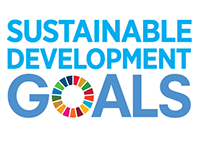Unemployment Rate
Definition:
Percentage of all unemployed persons in the labour force (age 15 and over)
Methods and Limitations:
The unemployment rate is the number of unemployed persons expressed as a percentage of the labour force. The unemployment rate for a particular group (age, sex, marital status, etc.) is the number unemployed in that group expressed as a percentage of the labour force for that group. Estimates are percentages, rounded to the nearest tenth.
To ensure respondent confidentiality, estimates below a certain threshold are suppressed. For Canada, Quebec, Ontario, Alberta and British Columbia suppression is applied to all data below 1,500. The threshold level for Newfoundland and Labrador, Nova Scotia, New Brunswick, Manitoba and Saskatchewan is 500, while in Prince Edward Island, estimates under 200 are suppressed. For census metropolitan areas (CMAs) and economic regions (ERs), use their respective provincial suppression levels mentioned above. Estimates are based on smaller sample sizes the more detailed the table becomes, which could result in lower data quality.
Source(s):
CMAs: Statistics Canada. Table 14-10-0385-01 Labour force characteristics, annual
CAs: Statistics Canada. Table 14-10-0385-01 Labour force characteristics, annual
Provincial & National Data: Statistics Canada. Table 14-10-0327-01 Labour force characteristics by sex and detailed age group, annual

 Unemployment Rate in the Sustainable Development Goals
Unemployment Rate in the Sustainable Development Goals
Click on the SDG to reveal more information
8. Promote inclusive and sustainable economic growth, employment and decent work for all
Roughly half the world’s population still lives on the equivalent of about US$2 a day. And in too many places, having a job doesn’t guarantee the ability to escape from poverty. This slow and uneven progress requires us to rethink and retool our economic and social policies aimed at eradicating poverty.
A continued lack of decent work opportunities, insufficient investments and under-consumption lead to an erosion of the basic social contract underlying democratic societies: that all must share in progress. The creation of quality jobs will remain a major challenge for almost all economies well beyond 2015.
Sustainable economic growth will require societies to create the conditions that allow people to have quality jobs that stimulate the economy while not harming the environment. Job opportunities and decent working conditions are also required for the whole working age population.

